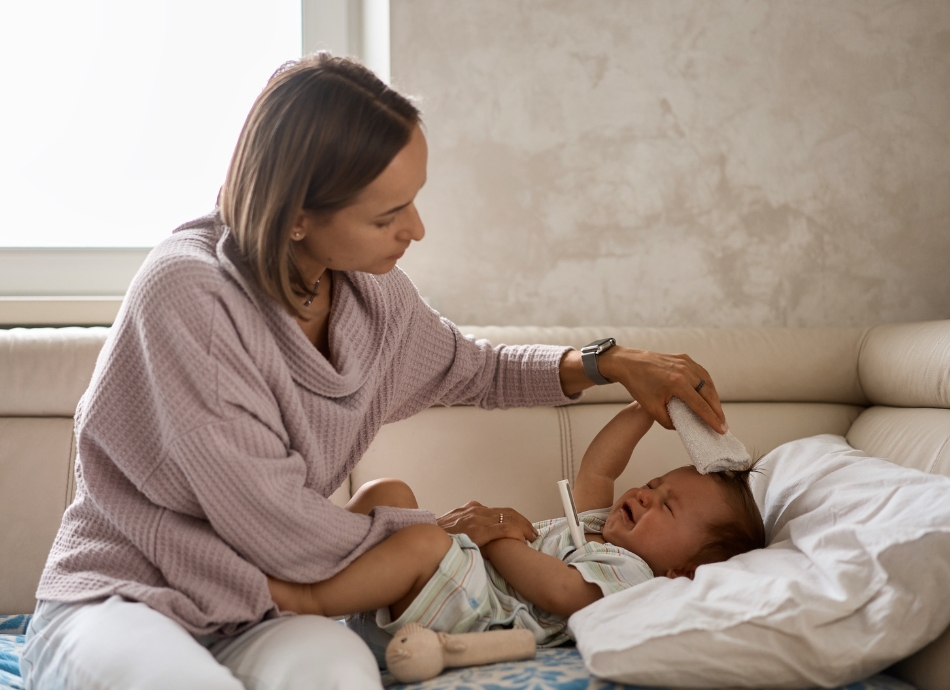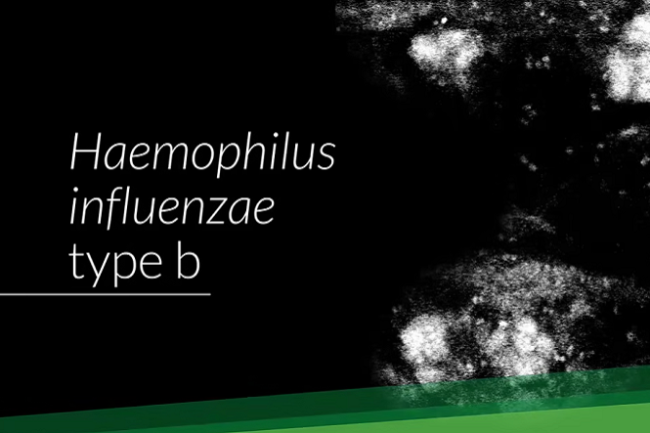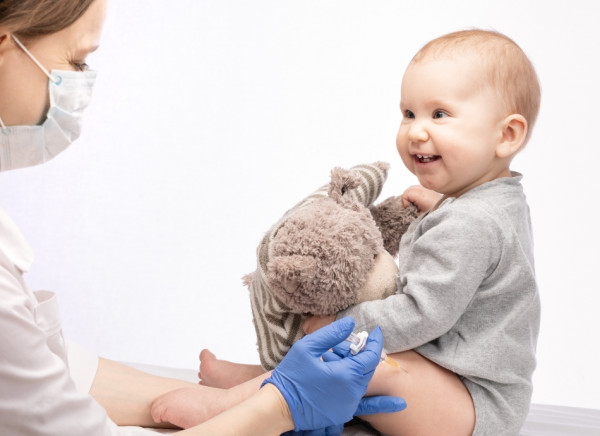You can now add Healthify as a preferred source on Google. Click here to see us when you search Google.
Haemophilus influenzae
Most commonly called haemophilus influenzae type b or Hib disease
Key points about haemophilus influenzae
- There are many types of Haemophilus influenzae bacteria. Type b (Hib) used to be the most common cause of severe disease in children.
- The bacteria are easily spread, mainly through direct contact or by sneezing and coughing.
- Hib causes infections ranging from mild ear infections to serious bloodstream infections or meningitis, but not influenza (the flu).
- Vaccination is the best protection.
- If your baby is sick with sudden fever, shaking/chills, cough, shortness of breath, chest pain, stiff neck, disorientation and/or sensitivity to light, act immediately. Urgent hospital care is usually needed as babies can get very sick very quickly.

Haemophilus influenzae bacteria live in the nose and throat of most healthy people without causing illness. The bacteria are easily passed from person to person by coughing, sneezing and close contact. Not everyone who catches or carries the bacteria gets sick. If the bacteria get into other parts of your body, it can cause infection.
The infections can range from minor infections to serious diseases. They include:
- ear infections
- pneumonia (infection of your lung)
- meningitis (infection of the covering of your spinal cord and brain)
- epiglottitis (windpipe inflammation which can lead to trouble breathing)
- osteomyelitis (infections of your bones and joints)
- bacteraemia (blood infection)
- cellulitis (skin infection).
The time between exposure and feeling symptoms (the incubation period) of haemophilus influenzae disease is uncertain but may be as little as just a few days.
Video: Haemophilus influenzae type b
Click the image below to visit the website, scroll down to see the video, then click play. (external link)
(external link)
(Immunisation Advisory Centre, NZ)
Haemophilus influenzae bacteria are common, but not everyone who has them will get sick. Those most at risk of serious disease are children under 5 years of age and people who have a weakened immune system. Being in childcare, having school-age brothers and sisters, and living with lots of other people can also increase the risk of getting Hib disease.
The symptoms of Hib disease are not the same for everyone. The symptoms vary, depending on where the infection is. A baby or young child may only have a fever and be irritable. Find out about the symptoms of the following conditions that can be caused by Hib:
- ear infection
- meningitis (infection of the covering of your spinal cord and brain)
- pneumonia (lung infection)
- cellulitis (skin infection)
- osteomyelitis(external link) (bone and joint infections)
- epiglottitis(external link) (severe swelling in your throat).
Meningitis and epiglottitis can develop quickly and can rapidly cause death if left untreated.
Symptoms of meningitis
- fever, loss of appetite, vomiting (being sick)
- drowsiness, headache, sensitivity to bright light, stiff neck
- bulging fontanelle in young babies.
Symptoms of epiglottitis
- fever
- difficulty breathing, noisy breathing
- difficulty swallowing, drooling (dribbling).
About 1 in 20 people with meningitis die and 1 in 3 of the survivors has permanent brain or nerve damage. About 1 in 100 people with epiglottitis die.
Your healthcare provider will diagnose and treat Hib disease based on your symptoms and test results. Prompt hospital care and intravenous antibiotics are usually needed for serious disease.
Read about the diagnosis and treatment of conditions caused by Hib disease:
Vaccination of babies and those at increased risk due to underlying medical conditions can greatly help to prevent Hib disease and spreading bacteria. Invasive Hib disease in Aotearoa New Zealand has declined by more than 99% since the Hib vaccine was introduced in 1994. Read more about the Hib vaccine.
All babies in Aotearoa New Zealand should be vaccinated against Hib disease as part of their free childhood vaccinations at 6 weeks, 3 months, 5 months and 15 months old. The final vaccination at 15 months is a booster dose.
It's very difficult to avoid coming into contact with the bacteria that cause this illness, so, as well as being vaccinated, you can reduce your chances of becoming infected or infecting others by:
- regularly washing your hands with soap and water or an alcohol-based hand gel – read more about hand washing
- covering your nose and mouth with your arm or a tissue when you cough or sneeze
- avoiding sharing items with saliva on them such as drink bottles or lip balm.
If someone in your household is infected with Hib, you may be offered antibiotics to prevent you from catching the disease.
Babies and young children are at particular risk of infection because their immune systems are not fully developed. However, they can be protected by being vaccinated against Hib disease. Hib disease has been almost eliminated in countries where the Hib vaccine is used.
Read about the Haemophilus influenza type B vaccine.
Vaccination against Hib disease is free as part of the National Immunisation Schedule in Aotearoa New Zealand for babies at 6 weeks, 3 months, 5 months and 15 months of age.
- If your baby misses these dates, they can have catch-up vaccinations. Talk to your healthcare provider about this.
- The vaccine is given by injection into the arm or leg.
- Children and adults with medical conditions that increase their risk of Hib disease (eg, sickle cell disease, some cancer treatments, HIV) are eligible for free vaccination against Hib.

Image credit: Canva
Haemophilus influenzae type b (Hib)(external link) Health New Zealand | Te Whatu Ora
Prevention – making a decision about vaccination(external link) Health New Zealand | Te Whatu Ora
References
- Childhood immunisation(external link) HealthEd, NZ, 2023
- Haemophilus influenzae type b(external link) Immunisation Advisory Centre, NZ
- Risk factors for haemophilus influenzae disease(external link) Centers for Disease Control, US, 2024
Credits: Healthify editorial team. Healthify is brought to you by Health Navigator Charitable Trust.
Reviewed by: Dr Helen Petousis-Harris, Associate Professor, Department of General Practice and Primary Health Care, University of Auckland.
Last reviewed:





